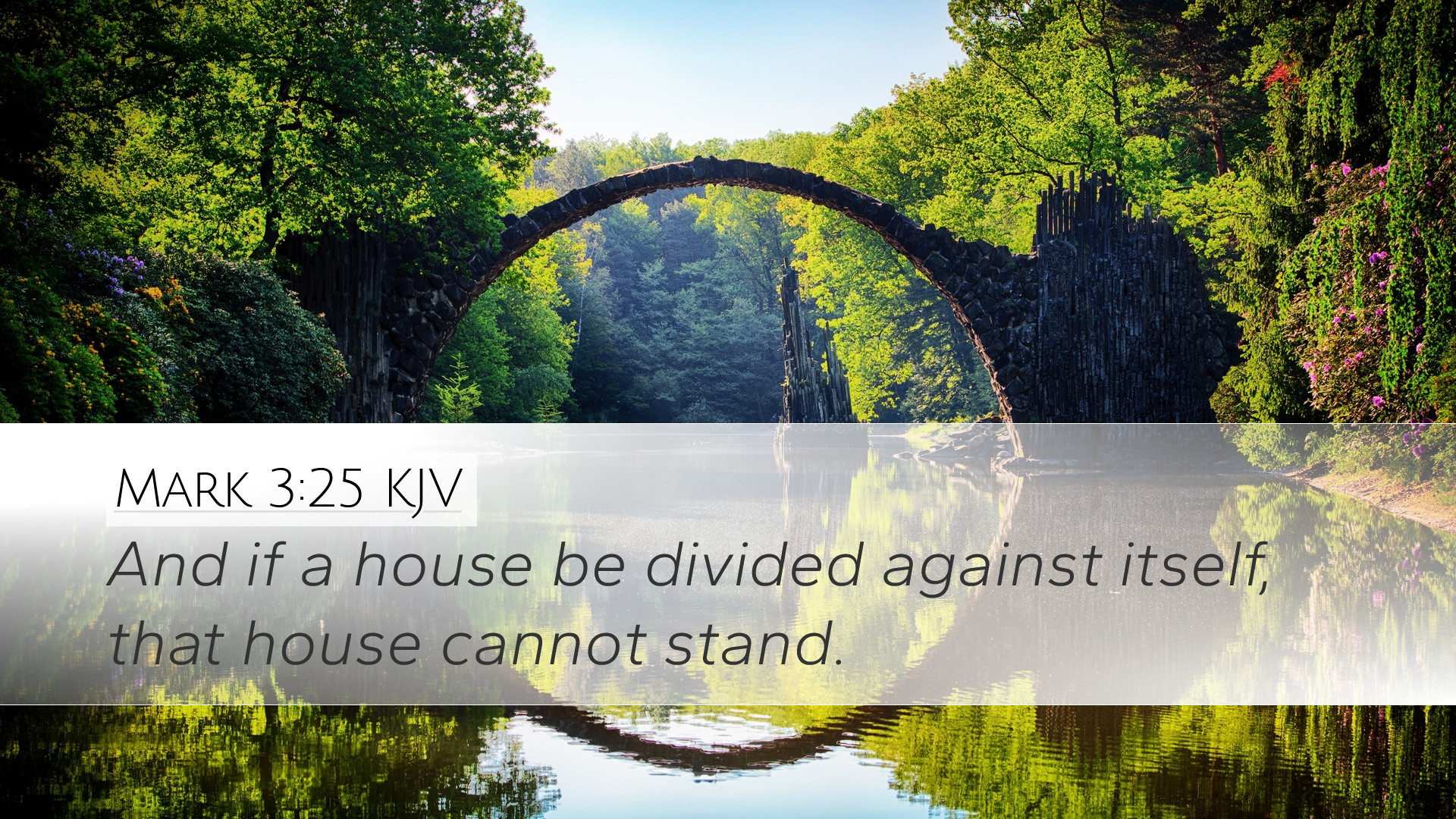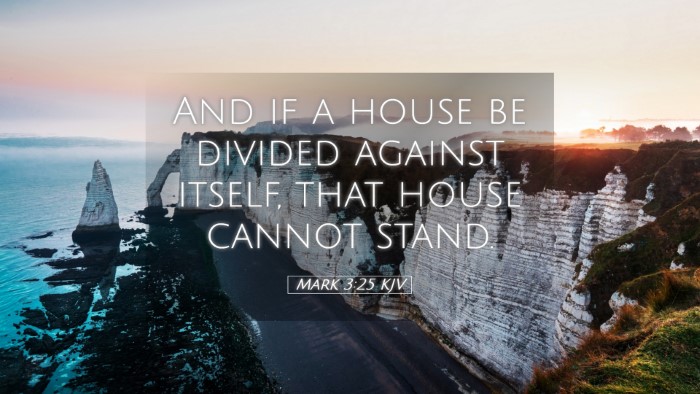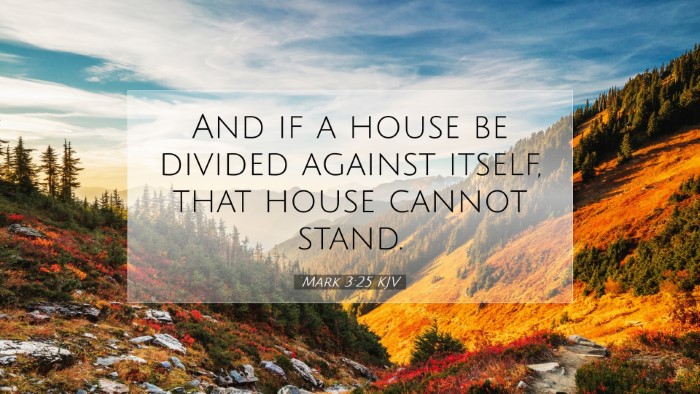Commentary on Mark 3:25
Text of the Verse: "And if a house be divided against itself, that house cannot stand." (Mark 3:25, KJV)
Introduction
This verse, though brief, carries profound implications for both personal and communal integrity. In its context, Jesus speaks concerning the opposition He faced and the accusations against Him regarding His authority. The statement serves as a vivid metaphorical illustration of division and unity.
Contextual Analysis
Understanding Mark 3:25 necessitates examining its immediate context within the chapter. Prior to this declaration, Jesus was confronting the Pharisees who claimed He cast out demons by the power of Beelzebub, the ruler of demons. Jesus uses logical reasoning to dismantle their accusations, emphasizing that a divided entity cannot endure.
Logos and Rhetoric
Matthew Henry notes that Jesus utilizes a straightforward yet powerful argument ("a house divided against itself cannot stand") to highlight the absurdity of their claims. He asserts that unity is essential for functional systems, whether personal, corporate, or spiritual. This rhetorical device not only serves to correct but also to unify the listeners by appealing to common sense.
Theological Insights
The theological implications of this verse can be explored through several layers:
- Unity in the Body of Christ: Albert Barnes emphasizes that the statement applies not only to physical houses but also to the church, which is often referred to as the "house of God." If believers are divided, the witness of the church is weakened.
- Implications for Relationships: In pastoral teachings, this verse can extend to the importance of unity within marriages and families. Adam Clarke states that disunity leads to dysfunction and decay, urging that relationships must be undergirded by understanding and love.
- Broader Societal Applications: On a societal level, the same principle applies. A nation or community marked by division struggles to progress and maintain stability. Henry points out that this maxim can serve as a warning against internal conflicts that can tear apart communities.
Practical Applications
Mark 3:25 provides rich territory for practical application:
- Self-Examination: Believers are encouraged to examine their own lives for areas of division. Are there conflicts in relationships or in one’s own heart that need addressing?
- Promote Unity: Churches and faith communities are often tasked with promoting peace and unity among members. This encourages a culture where differences are celebrated but not at the cost of community harmony.
- Pursuing Reconciliation: Jesus’ words implore pastors and leaders to seek reconciliation actively when conflicts arise, fostering an environment where grace and forgiveness prevail over bitterness and division.
Conclusion
In conclusion, Mark 3:25 serves as a poignant reminder of the necessity of unity in all aspects—be it personal relationships, the life of the church, or even sociopolitical structures. The insights of Henry, Barnes, and Clarke show that this wisdom is timeless, transcending generations and contexts. As believers walk in accordance with Christ's teaching, they contribute to a more harmonious and effective witness to the world, ensuring that their 'house' stands firm against the trials it may face.
Reflection
In reflecting upon Mark 3:25, let each reader consider the spaces within their lives that may be marked by division. What steps can be undertaken to foster unity? How can one become an agent of reconciliation? Christ calls us not only to stand firm in faith but also to build a community that reflects His love and truth.


